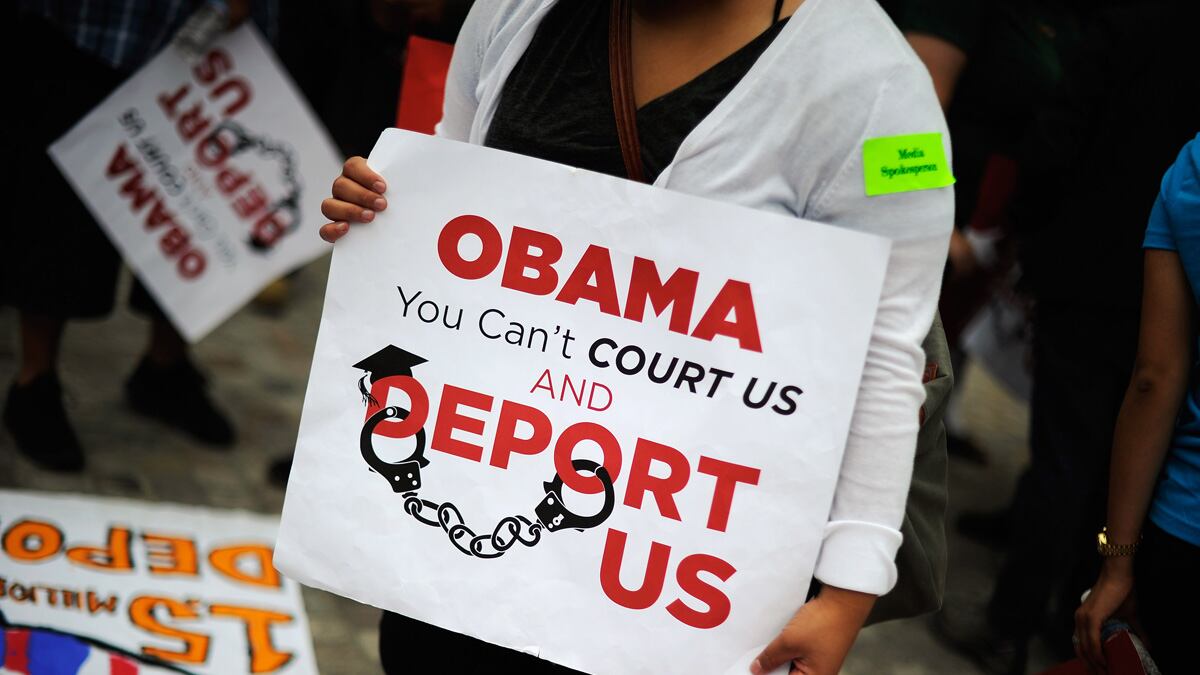
What are the requirements for “deferred action” and who won’t benefit from it?Illegal immigrants under age 30 who arrived in the U.S. before they turned 16 and who have lived in the country for at least five years are eligible for “deferred action.” The new policy requires that these immigrants also have a high school diploma or GED, or that they serve in the U.S. military. Regardless of meeting these qualifications, illegal immigrants with any criminal history won’t make the cut. A record besmirched with more than one misdemeanor offense (urinating in public, for example, or skipping a subway toll) will disqualify the applicant.
How did Obama enact the new policy?Obama issued an executive order to halt deportation of young illegal immigrants who support the DREAM Act, using his presidential authority to enact the policy immediately.
How is this different from the DREAM Act?Obama’s new immigration plan closely resembles the DREAM Act, which was blocked in 2010 by Republican lawmakers and would in its fullest form provide permanent residency to law-abiding immigrants who graduate from high school or serve in the U.S. military. But many Latinos have criticized the president for not taking enough action under the DREAM Act, as many youths eligible to remain in the country under the measure have continued to be forced out. Finally, Obama has answered their calls to exercise his authority. Under his executive order, young people who would be eligible under the DREAM Act to remain in the U.S. can now receive work permits and protection from deportation for two years, with the possibility of renewal.
What is “prosecutorial discretion?”In a 1985 ruling, the Supreme Court declared that “an agency’s decision not to prosecute or enforce, whether through civil or criminal process, is a decision generally committed to an agency’s absolute discretion.” In essence, “prosecutorial discretion” allows agencies or officers to decide individual criminal and civil cases. In exercising prosecutorial discretion, Obama and the Department of Homeland Security have the power to examine individual cases of immigrants in making deportation decisions. It allows Obama to accept or reject applicants based on the requirements drawn up by the DHS and to interfere in cases when immigrants are already in removal proceedings.
What states does this apply to?All of ’em.
How does this compare to what Obama’s said before?Throughout his presidency, Obama has repeatedly emphasized his support of the DREAM Act, which was originally introduced in the Senate in 2001. But since Congress is sharply divided on the proposal, Obama has taken heat for simply voicing his support rather than acting on it. The new policy is expected to protect roughly 800,000 young people brought to the U.S. illegally from being deported.
How does this compare to Mitt Romney’s stance?Yelps of displeasure from leading Republicans greeted the Obama administration’s announcement on Friday. Rep. Lamar Smith, chairman of the House Judiciary Committee, said the change in policy would have “horrible consequences for the unemployed Americans looking for jobs,” and that it “violates President Obama’s oath to uphold the laws of this land.” Whether the GOP nominee for president will respond to the announcement in such vociferous terms remains to be seen. The plan as outlined by the White House resembles the DREAM Act, which in its fullest form would grant permanent residency to young illegal immigrants who meet certain qualifications, such as graduating from high school. Romney, however, has said that he would veto any such legislation if he were elected, a position that has painted him into a corner as his party fights for every Latino vote leading up to November. While Mitt may be in a bind, legislators such as Florida Sen. Marco Rubio, who has been talked about as a potential veep pick, may show a way out for the GOP. However, with Obama leading the way on a plan in many ways similar to Rubio’s, the tables may again have been turned.






